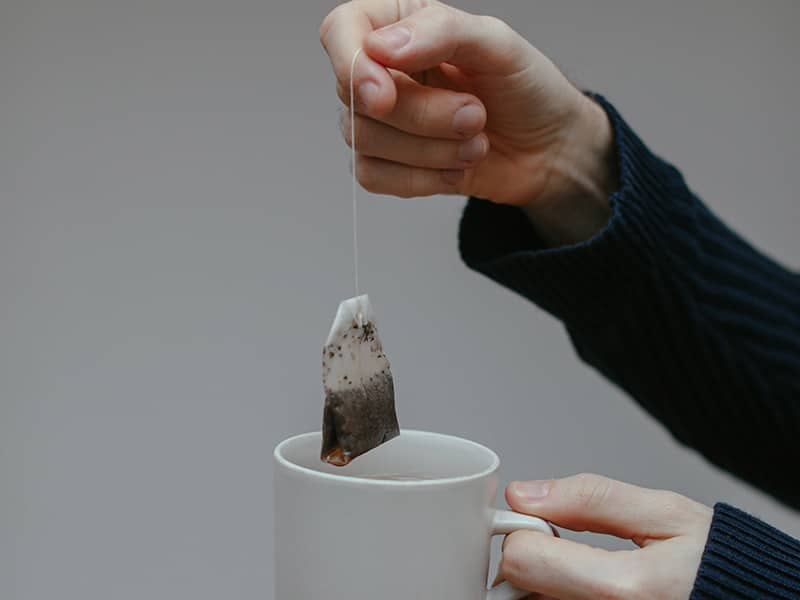


Herbal Medicine Courses
Herbal Medicine Diploma Course
CNM’s Herbal Medicine diploma course is divided into three parts and takes 3-5 years to complete depending on your chosen schedule.
The Herbal Medicine diploma course provides high quality training which equips graduates to build successful practices. It is carefully structured. Each study unit builds on the previous one, allowing students to develop their confidence and skills to reach their full potential as Herbalists.
80% of CNM graduates are practising (part time or full time)
- Part 1:
- Biomedicine, 1 year, 10 weekends or 20 weekdays
- Naturopathy Study, 1 year, 10 weekends or 20 weekdays
- Herbal Medicine I, 1 year, 10 weekends or 20 weekdays
- Part 2:
- Naturopathic Principles, 6 weekends or 12 weekdays
- Herbal Medicine II, 1 year, 23 weekends or 46 weekdays
- Part 3:
- Herbal Medicine III, 1 year. 24 weekends or 47 weekdays
Course Overview
Length of Study: 3-5 years (depending on chosen schedule).
Clinical Hours: 500 hours.
College Locations: London, Manchester and Online.
CNM Diplomas: Dip. Herbal Medicine & Dip. Naturopath (ND).
Accreditation: ANP, AMH, GNC and others.
Members: ANP, AMH, GNC, AHG and others.
Why study Herbal Medicine with CNM
- In-depth, practice-oriented study leading to successful Herbalists.
- Excellent up-to-date educational material including filmed lectures.
- Focus on whole, organic western herbs treating the whole person.
- 500 clinic hours on real clients to become confident with clients.
- Experienced & supportive lecturers who are herbalists themselves.
- Have your own finance & business plan, blog and social media.
- Leading UK herbal training provider, well acknowledged in the world.
- Study also Nutrition, Detox, Chinese diagnostic, Iridology, First Aid Homeopathy, Naturopathy, Physical Therapies leading to a Naturopathy Dipl.
- Option to study Online or In Class at one of CNM’s college locations.
Herbal Medicine Diploma - Syllabus
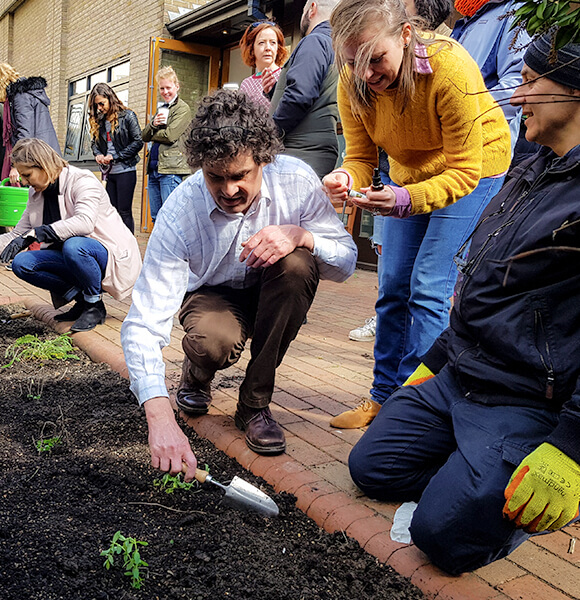
Part 1:
Biomedicine, Naturopathy Study & Herbal Medicine I
Biomedicine
The aim of Biomedicine is to get students to understand how the body functions, most common diseases, medical diagnostics, differential diagnostics and red flag symptoms. This way a future practitioner understands medical conditions, especially dangerous conditions and is able to decide what he can treat and when to refer to a specialist.
Medical Doctors, Dentists, Nurses, Physiotherapists, Pharmacists, Midwives, Chiropractors, Osteopaths are not required to take Biomedicine.
- Medical Terminology and Definitions.
- Anatomy, Physiology and Pathology of all Organ Systems.
- Infectious Diseases, Allergies and How the Immune System works.
- Pharmacology, Laboratory, Drug interactions.
- Diagnostics, Differential diagnostics and Examination methods.
- Red Flag symptoms, Legal Requirements, When to refer to an expert.
Herbal Medicine I
- History, philosophy and treatment theories of Western herbal medicine
- Herbal actions and their therapeutic applications
- Safety considerations for herbal medicine
- Social, political and legal context for herbal practice
- Plant anatomy and physiology
- Basic horticulture
- Ecological issues and sustainability in herbal medicine
- Energetics (Greco-Roman, Ayurveda, Traditional Chinese Medicine, American traditions)
- Clinical Observation
- Practitioner Development & Ethics I
- Research & study skills I
Naturopathy Study
Naturopathy
- Pioneers of Naturopathy, Naturopathic Principles, Healing Power of Nature.
- Treating the Cause – not the Symptom. How not to Suppress symptoms.
- The Laws of Cure. Fundamentals of Cure, How the Body can Heal itself.
- Hydrotherapy: The many cures of Water (external & internal applications).
TCM (Traditional Chinese Medicine)
- The 4 Pillars of TCM Diagnostics (pulse, tongue, face, nails).
- Acupuncture Channels, their relation to organ functions. Yin - Yang Theory.
- The Energetics of Food (warming, cooling, dehydrating, moistening).
- Chinese Diets to strengthen a patients individual constitution.
Naturopathic Nutrition
- Principals of Naturopathic Nutrition, Micro and Macro Nutrients. The nutritional benefits of different foods with knowledge of macro and micronutrients.
- How to apply Nutritional Therapy in your practice.
- Let Food be your Medicine and Medicine be your Food (Hippocrates).
- Food combination, Superfoods, Various Diets, The CNM Naturopathic Diet. How to make healthy food choices.
- Specific Foods for particular Ailments, Cooking for Health, Case studies.
First Aid Homeopathy
- The Laws of Cure, Homeopathic Case taking and Prescription.
- First Aid Homeopathic Remedies and Applications, Case Studies.
Herbal Medicine
- Identifying, collecting, drying, storing and preparing herbs. Herbal safety.
- Application of herbal medicines (internal and external) for therapeutic benefits.
- Herbal formulas and naturopathic treatments for specific diseases.
Iridology
- Iridology as a diagnostic tool. Case taking, assessment and diagnosis.
- Constitutional Iris types, signs and markings in the iris.
- Using iridology to choose best treatment in Naturopathic practice.

Part 2:
Naturopathic Principles & Herbal Medicine II
Naturopathic Principles
- Naturopathy & Detoxification
- Bach Flower Therapy
- Tissue Salts
- Bodywork (Acupressure, Reflex therapies)
Herbal Medicine II
- Biochemistry
- Pharmacology
- Herb drug interactions
- Botany & Plant identification
- Quality assessment of herbal medicines
- Preparation of internal and external herbal medicines
- Herbal medicine materia medica
- Clinical examination skills
- Pathology
- Clinical Observation and Experience
- Practitioner Development & Ethics II
- Research & study skills II
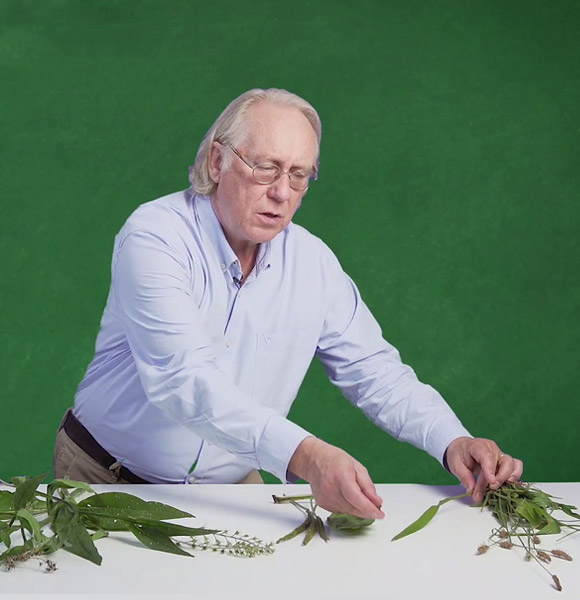
Part 3:
Herbal Medicine III & Dissertation
Herbal Medicine III
- Herbal Therapeutics
- Eyes, ears, nose, throat and face
- Lower respiratory system
- Gastrointestinal system
- Musculoskeletal system
- Genitourinary system
- Cardio-vascular system
- Blood and lymphatic system
- Nervous system
- Endocrine system
- Immune system
- Female and male reproductive systems
- Fertility
- First aid and acute treatments
- Dermatology
- Obstetrics
- Paediatrics
- Oncology
- Geriatrics
- Clinical Practice
- Clinical Management
- Practitioner Development & Ethics III
Dissertation
What our students are saying.
I’ve fulfilled my dream of being in a position to help and educate society.
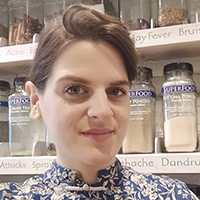
“My health was affected by two chronic conditions: PCOS (Polycystic Ovary Syndrome) and post viral fatigue following two bouts of glandular fever in my teens. I studied at CNM to get myself well again.
Studying alongside like-minded people was amazing and the standard of training was superb. The lecturers are experts in their fields, empowering us with their knowledge.“
Corina, Herbal Medicine & Naturopathy
CNM has such an involved and supportive community. I now run a busy clinic.
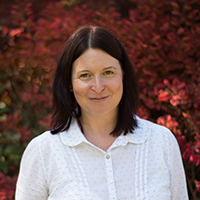
“I went to see a naturopath who helped me with my hormonal issues. I soon started to feel better and this inspired me to learn everything I could about natural therapies.
I enrolled at CNM which saved my life – now I have my health back and my dream career! I get to do something I love every day and help so many people with my knowledge.“
Sarah, Herbal Medicine & Naturopathy
I set up in practice immediately after graduating.

“After gaining a BSc in Biochemistry, I worked in pharmaceutical marketing before becoming disillusioned with the pharma-led model of healthcare.
I decided to change my career completely and opted for herbal medicine as it combined my scientific background with my interest in natural health. Helping people every day is so satisfying.“
Adam, Herbal Medicine & Naturopathy
Patrons.
The College of Naturopathic Medicine is pleased to have the following health experts as patrons who support the aims and objectives of CNM:

Dr. Tom O'Bryan
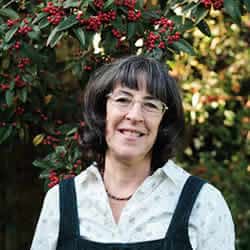
Dr. Jenny Goodman
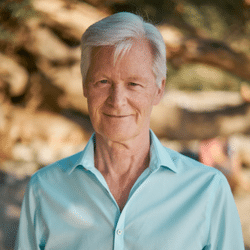
Dr. Udo Erasmus

Leah Hechtman
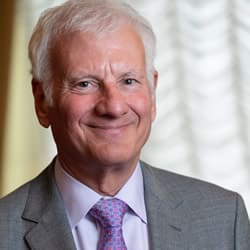
Dr. Joseph Pizzorno ND

Dr. Jayne Donegan

Dr. Michael Murray
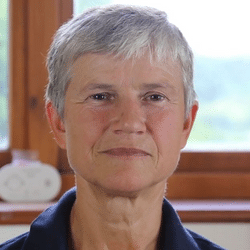
Dr. Sarah Myhill MB BS
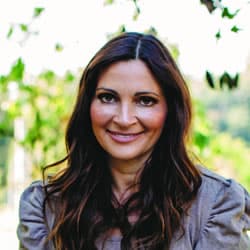
Lee Holmes
Students from all over the world choose CNM.
Three-time winners of IHCAN Best College

Students from
112 countries

80% of graduates are practising

Do something life-changing.
Contact us today, and receive a free course guide.
*denotes a required field
Herbal Medicine Course Prerequisites
5 GCSEs or 2 A Levels, or equivalent academic and/or work experience. If you are able to demonstrate previous study or work experience you may apply to gain exemptions from some units. Please contact us for more information and to see if you qualify for direct enrolment.
Herbal Medicine Course Accreditation
Herbal Medicine Training
![]()
CNM Students are eligible to join the ANP (Association of Naturopathic Practitioners) and receive the following benefits:
- Access to various databases for further research
- Discounted indemnity insurance for clinical practice
- Discounts from various companies
- Reduced fees for special seminars, lectures, master classes, workshops

AMH (Association of Master Herbalists).The CNM Herbal Medicine course has been fully accredited by the AMH for many years.
Naturopathy Training
CNM’s Herbal Medicine training is based on Naturopathic Principles. It covers additional Naturopathic topics which gives the CNM trained Herbalist a wider spectrum of therapeutic and diagnostic tools.

GNC (General Naturopathic Council). Graduates are eligible to apply for GNC registration.
![]()
ANP (Association of Naturopathic Practitioners) The ANP is the largest Association for Naturopathic Nutrition and Naturopathy in the UK and Ireland. ANP members are widely respected in the industry in Europe and Internationally.
Become a Qualified Herbalist
Herbal Medicine Blog Posts
Further Studies
Students who have completed their Herbal training with the CNM may opt to study additional specialist diploma courses, Homeopathy, Acupuncture, or Naturopathic Nutrition.
Herbal medicine has a long tradition in all cultures. Applications in practice have proven the huge benefits of herbs. As well as relieving symptoms, herbal medicine also works on a deeper level to help patients return to full harmony. Herbal medicine is becoming ever more popular, as ever more people seek out qualified herbalists.
The CNM Herbal Medicine Diploma Course provides high quality training that equips graduates to build successful practices. It is carefully structured so each study unit builds on the previous one, allowing students to develop their confidence and skills, and reach their full potential as professional Herbalists. Students are strongly encouraged to develop their own unique style of consultation and application. One of the strengths of The College of Naturopathic Medicine course is that we draw on a variety of herbal traditions: we have expert lecturers in western, Ayurvedic (Indian) and Chinese herbal medicine. Students study the energetic models of these systems, allowing them to make a multi–faceted, holistic diagnosis. Graduates can draw on a wide variety of herbs from different traditions, helping them to provide the best possible treatment for their patients. Studying Herbal Medicine at the CNM means that upon graduating, you are not only a Herbalist but also have a good grounding in Naturopathic Nutrition, First Aid Homeopathy, Chinese diagnostics, Bach Flowers, Tissue Salts, Naturopathy and Iridology. You’ll be a specialist in Herbal Medicine and you will be able to apply a number of other tools to help your patients. CNM Diploma courses focus on practical applications as the main aim of CNM is to train its students to become successful practitioners.
Herbal Medicine is regulated by professional associations. CNM graduates are eligible to join relevant associations and get indemnity insurance.

